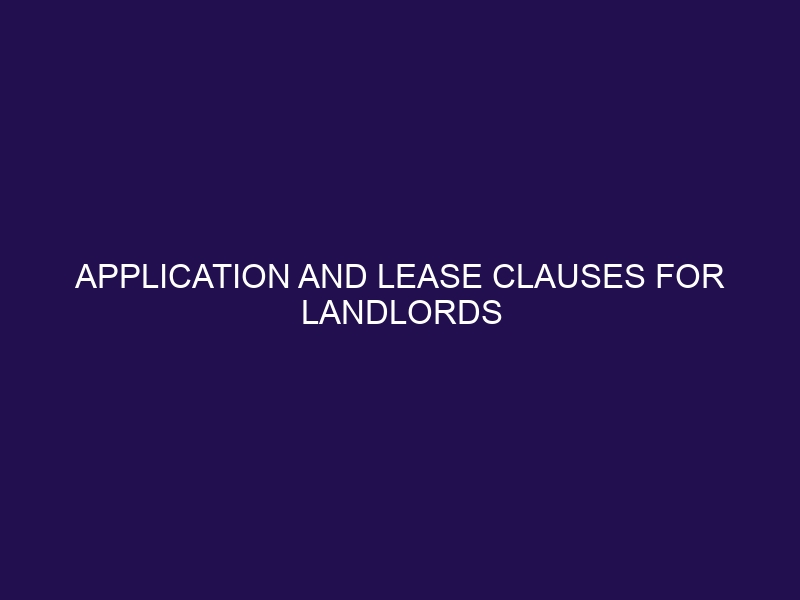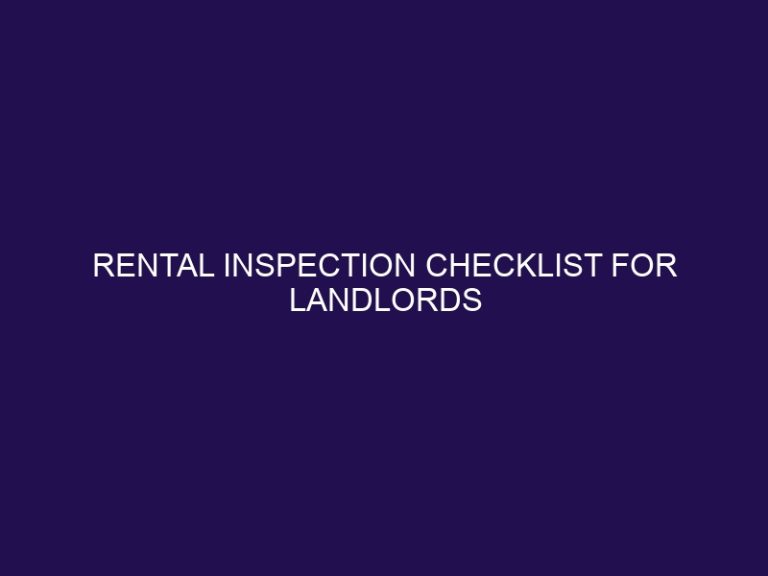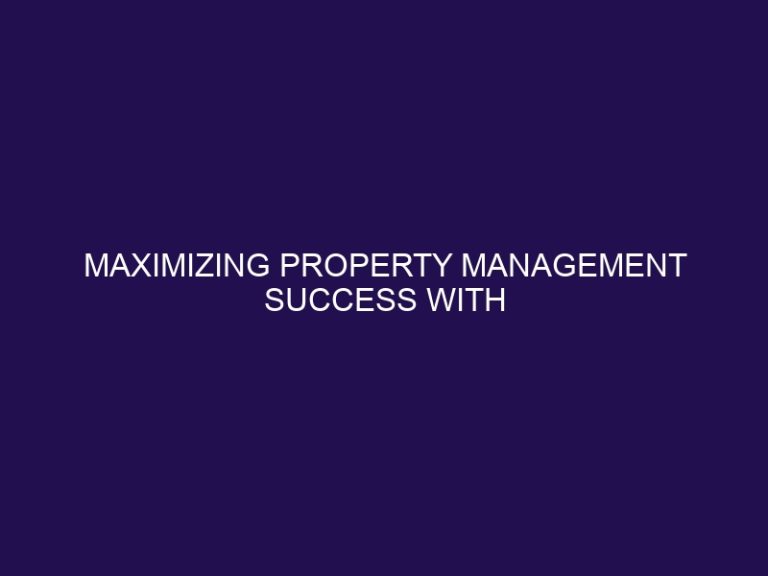Application and Lease Clauses for Landlords
A lease clause is a contractual provision in a rental agreement that outlines the rights, duties, and obligations of both the landlord and tenant. It serves as a legal document that protects both parties and sets the terms and conditions for the tenancy.
As a landlord, including specific and effective lease clauses in your rental agreement is crucial for a smooth and hassle-free renting experience.
Lease clauses are important for landlords for several reasons. They provide a clear understanding of the expectations and responsibilities of both the landlord and tenant, help protect the property and its value, and serve as evidence in case of any disputes. Additionally, lease clauses can also address important legal issues and can be a useful reference in court if necessary.
There are various types of lease clauses that landlords can include in their rental agreements, such as:
- Rent and payment clauses, which outline the amount and frequency of rent payments.
- Maintenance and repair clauses, which specify the responsibilities of both parties for property maintenance.
- Tenant responsibilities clauses, which outline the expectations for tenant behavior and care of the property.
- Termination and renewal clauses, which detail the terms for ending or extending the lease.
- Pet and smoking clauses, which address the rules and regulations regarding pets and smoking on the property.
Some commonly used lease clauses for landlords include:
- Security deposit clause, which outlines the amount and use of the security deposit.
- Late rent payment clause, which states the consequences for not paying rent on time.
- Subletting clause, which addresses whether tenants can sublet the property.
- Noise and nuisance clause, which outlines rules for quiet enjoyment of the property.
When drafting lease clauses, landlords should consider the specific needs of their property and consult with a lawyer to ensure they are compliant with local laws and regulations. It is essential to use clear and specific language to avoid any confusion or disputes.
In negotiating lease clauses with tenants, landlords should be open to compromise and explain the reasoning behind the clause. They should also consider any feedback from the tenant and document any changes made to the lease. With effective lease clauses, landlords can protect their property and ensure a positive renting experience for both parties.
Key Takeaways:
What is a Lease Clause?
A lease clause is a provision in a lease agreement that defines and explains the terms and conditions of renting a property, including details about rent payment schedules, maintenance responsibilities, and pet policies.
Why are Lease Clauses Important for Landlords?
Why are Lease Clauses Important for Landlords?
Lease clauses are crucial for landlords as they serve to protect their property, outline tenant responsibilities, and help resolve disputes. In fact, a landlord’s detailed lease clause regarding property maintenance proved to be invaluable when a tenant failed to address a leak, ultimately holding them accountable for any resulting damages and saving the landlord from incurring extensive repair costs.
What are the Different Types of Lease Clauses?
As a landlord, it is crucial to have a comprehensive lease agreement in place to protect your property and ensure a smooth tenancy. A lease agreement consists of various clauses that outline the terms and conditions of the rental agreement. In this section, we will discuss the different types of lease clauses and their respective roles in the landlord-tenant relationship. From rent and payment clauses to termination and renewal clauses, each one serves a specific purpose in the leasing process. Understanding these clauses will help you create a strong and fair lease agreement for your tenants.
1. Rent and Payment Clauses
- Define Payment Schedule: Clearly outline the rent amount, due date, and accepted payment methods.
- Specify Late Fees: Detail consequences for late payments and grace periods.
- Explain Deposit Handling: Clarify how the security deposit is managed and the conditions for its return.
Pro-tip: Make sure that the rent and payment clauses are in compliance with local tenancy laws.
2. Maintenance and Repair Clauses
- Ensure clarity when outlining maintenance and repair responsibilities.
- Define the scope of repairs covered by the Maintenance and Repair Clauses.
- Indicate the time frame for addressing repair requests as stated in the clauses.
The practice of including Maintenance and Repair Clauses in leases dates back to medieval times when feudal lords and tenants outlined their respective responsibilities for property upkeep.
3. Tenant Responsibilities Clauses
- Understand the clauses in the lease regarding tenant responsibilities.
- Define specific obligations for tenants regarding property maintenance and care.
- Include clauses for waste disposal, cleanliness, and adherence to property rules.
- Address subleasing and alterations with clarity.
4. Termination and Renewal Clauses
- Review Lease Term: Determine the length of the lease and conditions for renewal.
- Notice Period: Specify the notice period for termination or renewal.
- Renewal Terms: Outline any changes in rent or conditions for lease renewal.
- Termination and Renewal Clauses: Detail conditions under which the lease can be terminated or renewed.
5. Pet and Smoking Clauses
- Specify which types of pets are allowed, such as cats or dogs.
- Outline any restrictions on pet size, breed, and number.
- Detail any additional pet deposit or monthly pet fees.
- Explain the rules regarding smoking areas and restrictions within the property.
What are Some Commonly Used Lease Clauses for Landlords?
As a landlord, it is essential to have a well-written and comprehensive lease agreement to protect your property and your rights. One crucial aspect of a lease is the inclusion of specific clauses that outline the expectations and responsibilities of both parties. In this section, we will discuss some commonly used lease clauses for landlords, including the security deposit clause, late rent payment clause, subletting clause, and noise and nuisance clause. Understanding these clauses will help you create a fair and effective lease agreement for your rental property.
1. Security Deposit Clause
- Include a clause outlining the security deposit amount and conditions for its return.
- Specify a timeframe for returning the security deposit after the termination of the lease.
- Detail any potential deductions that may be made from the security deposit.
- Ensure compliance with local laws and regulations regarding security deposits.
2. Late Rent Payment Clause
- Include clear terms specifying the grace period for late payments.
- Outline any penalties or fees for late rent payments, as outlined in the Late Rent Payment Clause.
- Detail the procedure for notifying tenants of late payments and the consequences outlined in the clause.
- Specify the consequences for repeated late payments, as stated in the clause.
In 2018, the inclusion of a Late Rent Payment Clause in a lease agreement helped a landlord enforce timely payments, ensuring steady rental income.
3. Subletting Clause
- Define the terms and conditions of subletting clearly, including the process for obtaining consent from the landlord.
- Specify any conditions or restrictions related to subletting.
- Outline the responsibilities of both the original tenant and subletter in the subletting arrangement.
- Include details about the duration of the sublease and the rights of the original tenant during the sublet period.
4. Noise and Nuisance Clause
The clause regarding noise and nuisance, numbered 4., lays out guidelines for tenant conduct in order to prevent disturbances. It forbids excessive noise, disruptive activities, and behavior that may cause annoyance to neighbors. Landlords may also establish quiet hours and consequences for breaking the clause, ensuring a peaceful living environment for all tenants.
How to Draft Effective Lease Clauses for Landlords?
As a landlord, it is crucial to have a well-written lease agreement that protects both you and your tenants. In this section, we will discuss the key steps you should take to draft effective lease clauses. First, we will emphasize the importance of understanding local laws and regulations that may impact your lease agreement. Next, we will recommend consulting with a lawyer to ensure your clauses are legally sound. Then, we will explore how to consider the specific needs of your property and tenants when drafting clauses. Finally, we will stress the importance of using clear and specific language to avoid any confusion or disputes in the future.
1. Understand Local Laws and Regulations
- Research and familiarize yourself with local laws and regulations regarding landlord-tenant relationships.
- Identify any specific lease requirements mandated by the local government.
- Consult with legal counsel to ensure compliance with all relevant laws.
When drafting lease clauses, it is essential to have a thorough understanding of local laws and regulations to protect the rights and interests of both landlords and tenants.
2. Consult with a Lawyer
- Research: Investigate local landlord-tenant laws and regulations.
- Legal Advice: Seek counsel from a qualified lawyer specializing in real estate law.
- Documentation: Ensure all lease clauses comply with legal requirements.
- Review: Have the lawyer review and validate the final lease agreement.
A landlord, John, sought the expertise of a lawyer to draft comprehensive lease clauses. This legal guidance not only protected him from potential disputes but also ensured fair tenancy terms for all tenants.
3. Consider the Specific Needs of Your Property
- Evaluate the type of property, whether it is residential, commercial, or mixed-use.
- Assess any unique features, such as the availability of parking space or amenities.
- Take into consideration the local demographics and the demand for rental properties in the market.
- Account for any property-specific regulations, such as zoning or environmental restrictions.
4. Be Clear and Specific in Language
- Use clear and unambiguous terms and avoid jargon.
- Define all terms and obligations clearly.
- Avoid vague language to prevent misunderstandings.
- Include specific details on rent, repairs, and tenant responsibilities.
What are Some Tips for Negotiating Lease Clauses with Tenants?
As a landlord, negotiating lease clauses with tenants is a crucial part of maintaining a successful rental property. However, these discussions can often lead to conflicts and disagreements. In this section, we will discuss some helpful tips for landlords when negotiating lease clauses with tenants. From being open to compromise to documenting any changes made, these strategies can help ensure a smooth and mutually beneficial agreement between both parties.
1. Be Open to Compromise
- Listen to tenant concerns.
- Identify mutually beneficial solutions.
- Offer trade-offs.
- Maintain professionalism during negotiations.
I once negotiated a lease clause with a tenant regarding pet ownership. By being open to compromise, we were able to reach an agreement on a pet deposit and clear guidelines, ensuring a positive rental experience for both parties.
2. Explain the Reasoning Behind the Clause
Landlords should make the purpose of each clause clear to tenants in order to foster understanding and cooperation. For example, providing an explanation for a maintenance clause helps ensure that tenants understand their responsibilities and can effectively maintain the property’s condition.
3. Consider Tenant Feedback
- Actively listen to tenants’ concerns and suggestions.
- Engage in open and respectful dialogue regarding proposed changes.
- Seek common ground and mutually beneficial solutions.
- Document any agreed-upon modifications to the lease based on tenant feedback.
4. Document Any Changes Made to the Lease
- Communicate: Discuss any proposed changes with tenants.
- Clarify: Clearly outline any adjustments in writing.
- Agree: Obtain tenant consent in accordance with lease regulations.
- Record: Document any modifications formally within the lease agreement.
Frequently Asked Questions
What is the importance of a well-written lease agreement for both landlords and tenants?
A well-written lease agreement provides a set of rules and provisions that must be followed by both parties, ensuring a smooth and successful rental experience. It also serves as a basis for resolving any issues that may arise during the tenancy.
What are some key clauses that landlords should include in their lease agreements?
Some important clauses to include are guest clauses to prevent excessive wear and tear, clearly outlined utility responsibilities, and provisions for security deposits, late fees, and other important details. It is also recommended to regularly review and update the lease agreement to ensure compliance with changing laws.
Why is it important for landlords to carefully review the lease agreement before signing?
It is important for landlords to carefully review the lease agreement to ensure that it covers all necessary information and protects their investments. This also helps to avoid potential problems and confusion in the future.
What are some best practices for landlords when it comes to tenant screening?
Landlords should thoroughly screen potential tenants and consider factors such as credit scores and rental history. It is also recommended to seek legal advice and utilize resources like credit bureaus and tenant records to make informed decisions.
How can landlords protect themselves from problematic tenants and potential legal issues?
Landlords should prioritize having a comprehensive and legally-binding lease agreement, thoroughly screen potential tenants, and regularly communicate with tenants to address any issues that may arise. It is also recommended to get insurance for additional protection.
How can landlords ensure timely and on-time rental payments from tenants?
Landlords can include provisions for eviction in the lease agreement, clearly stating consequences for late or missed payments. It is also recommended to utilize resources like rent reporting agencies to encourage positive payment behavior.







